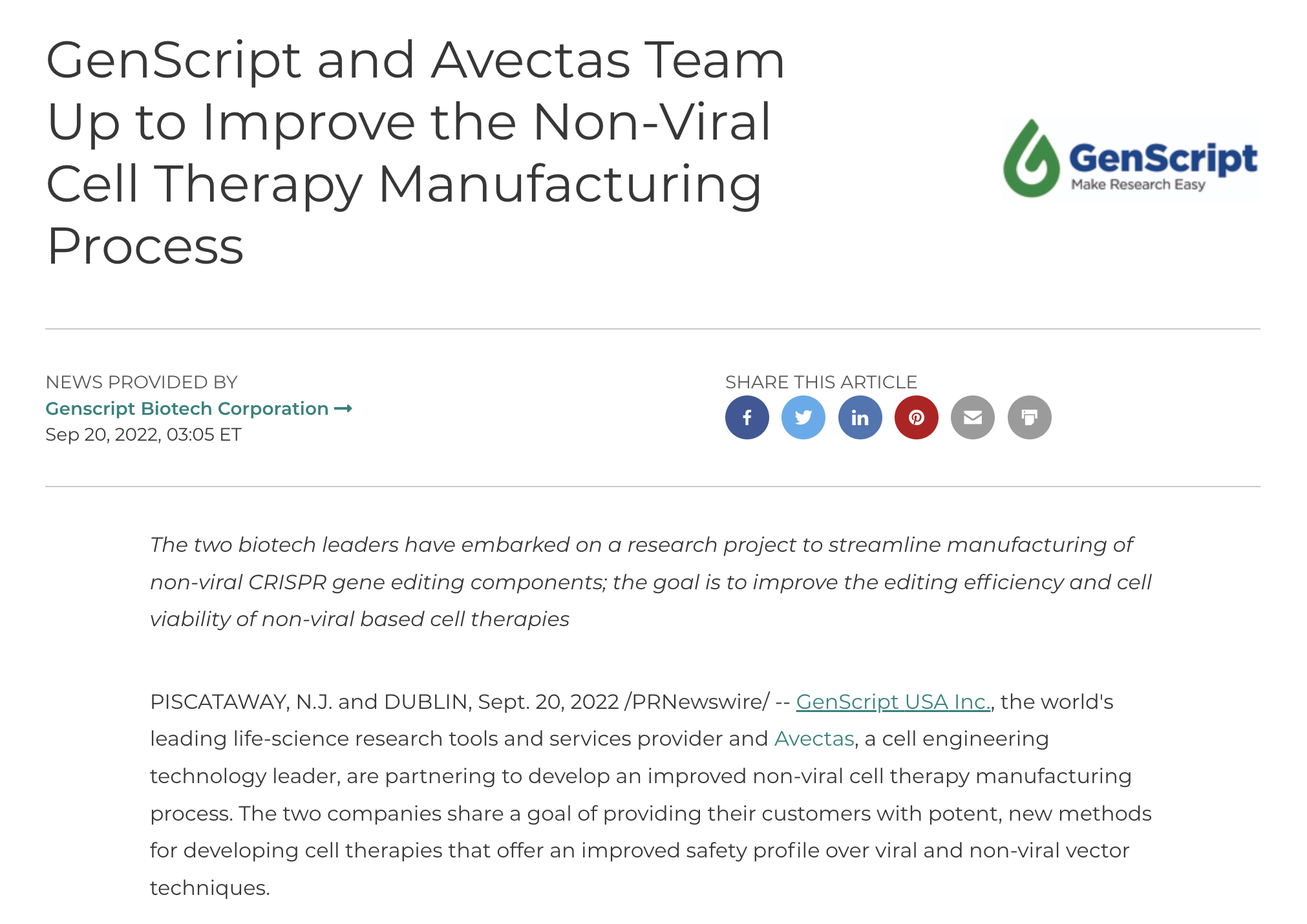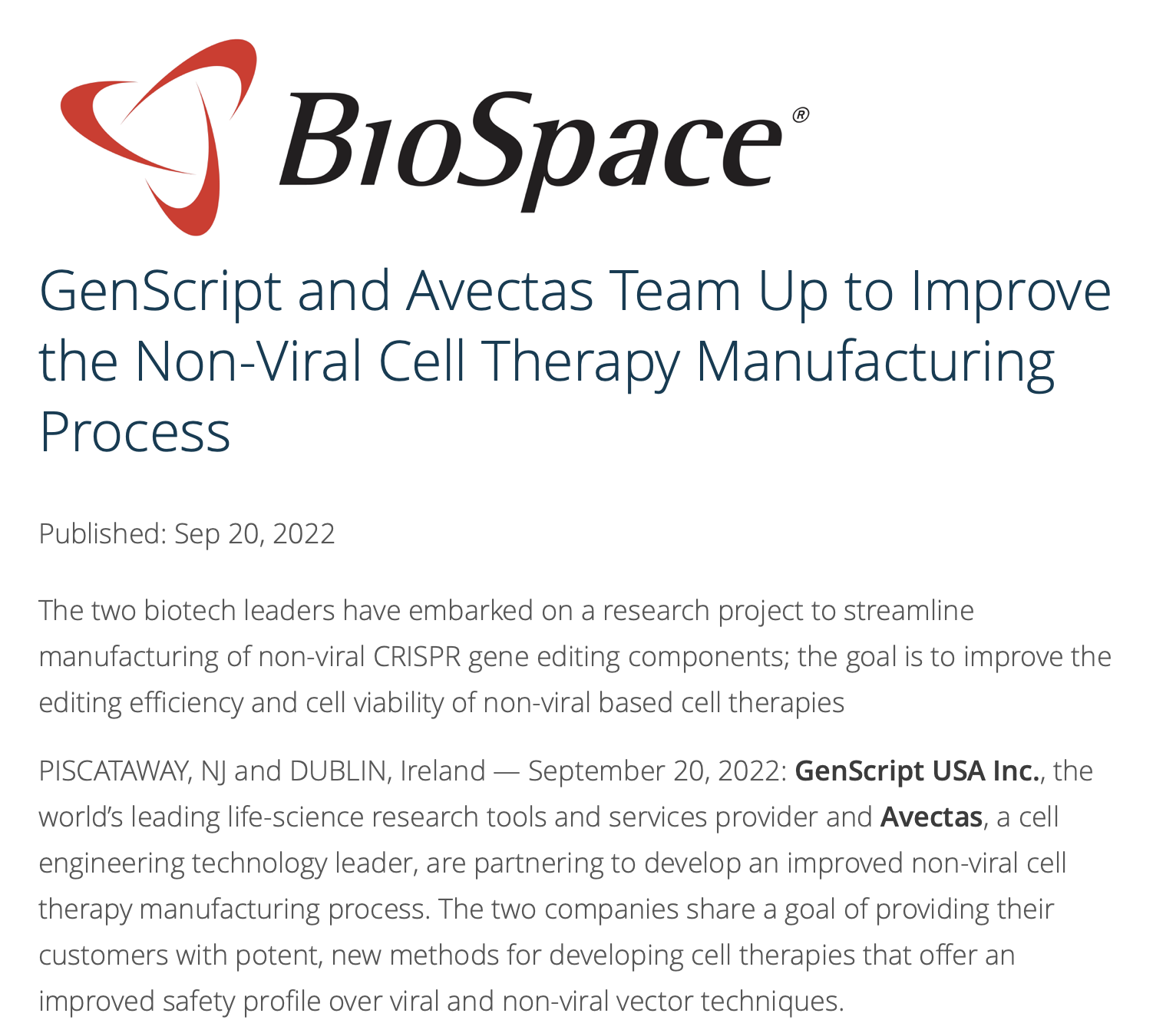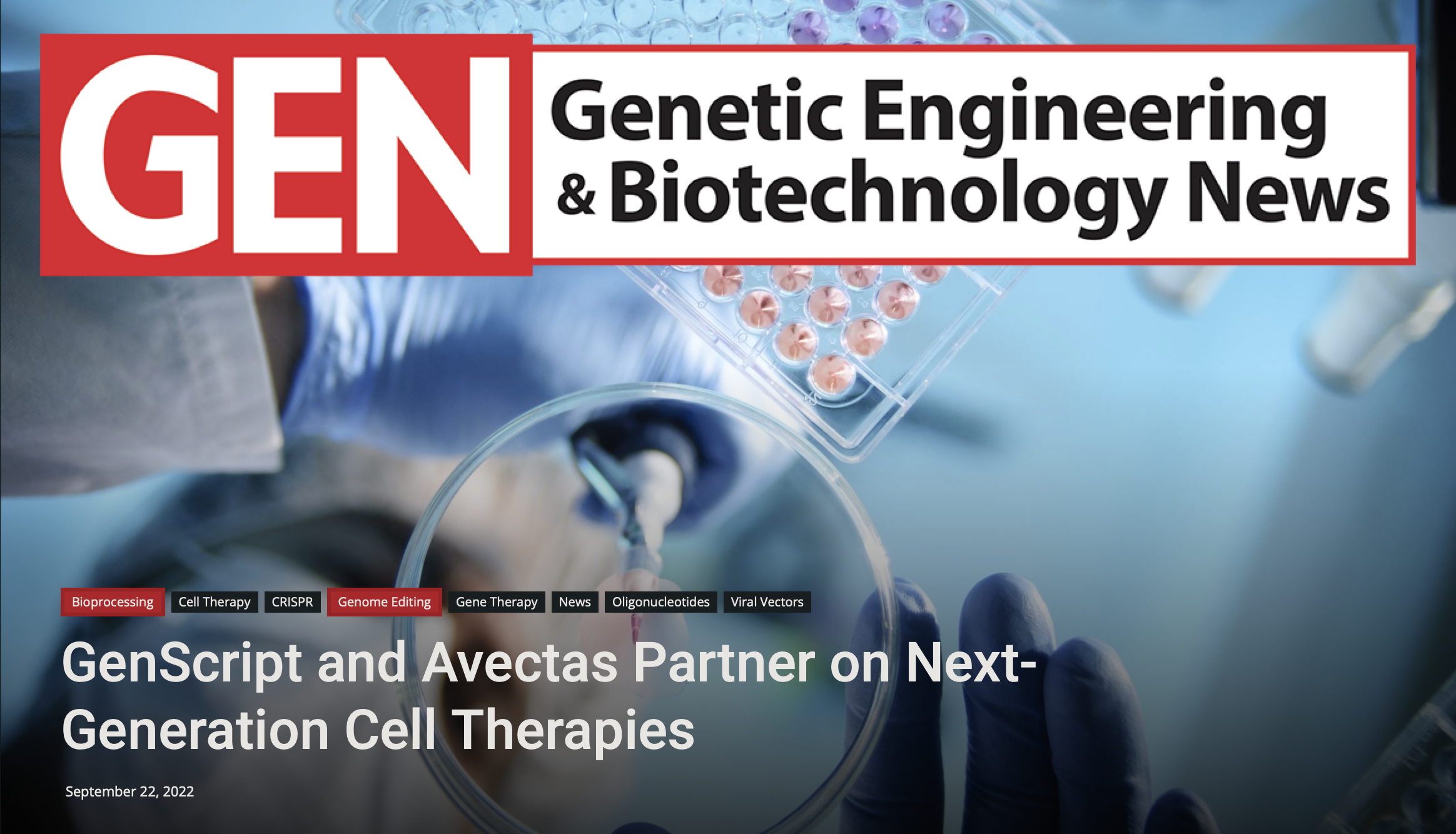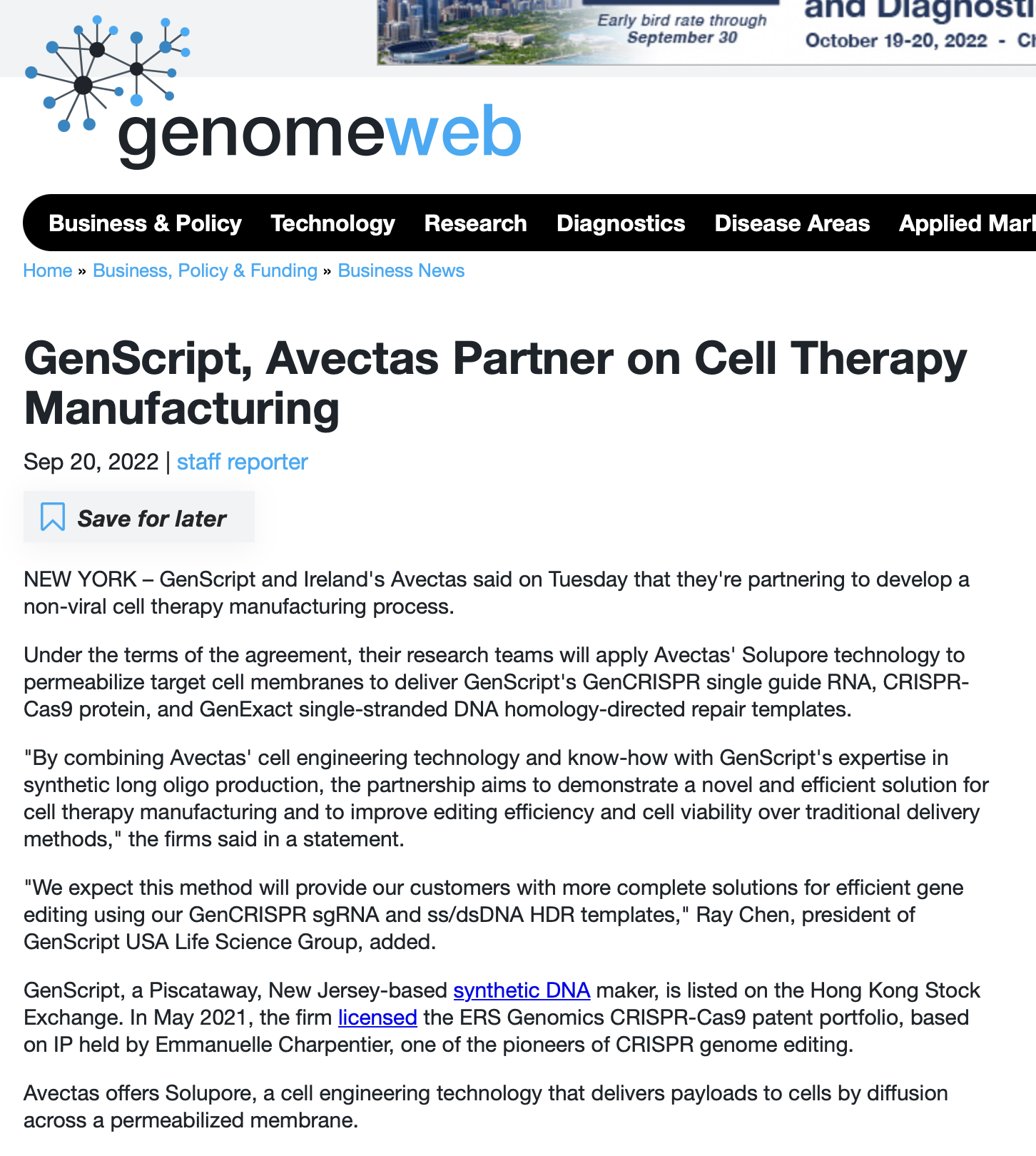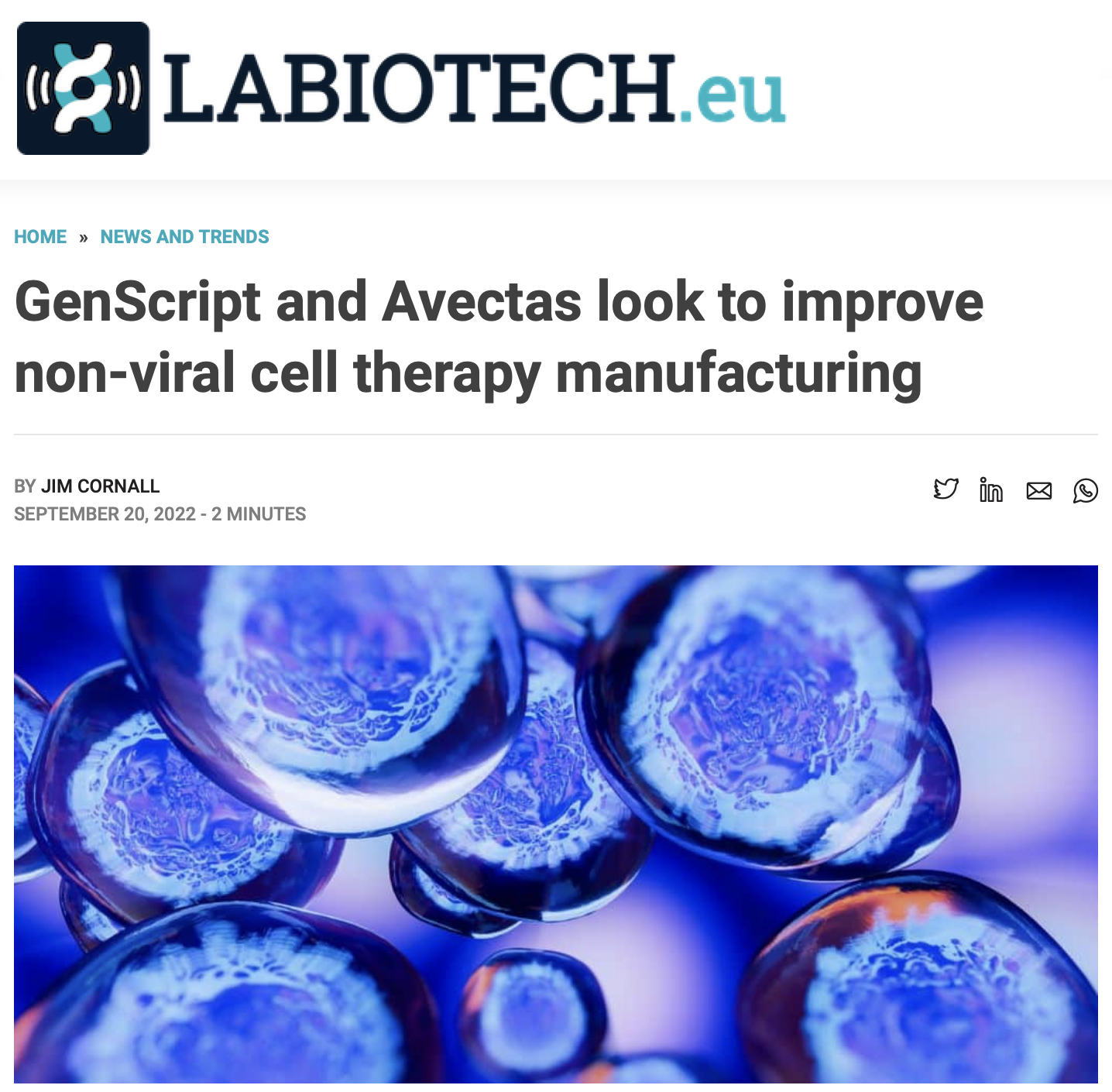GenScript and Avectas aim to reduce the cost of non-viral cell engineering
CRISPR-based non-viral gene editing methods have gained popularity among research teams due to concerns expressed in the FDA's draft guidance on the use of viruses for gene and cell therapy. To fast-track alternate delivery techniques, GenScript is collaborating with academic and industry partners in the development of CRISPR non-viral gene editing that will enable next-generation gene- and cell-therapy R&D projects.
Today, GenScript announced a partnership with Ireland-based Avectas that focuses on improving the pathway for delivery of modified DNA into a target cell. By combining Avectas' cell engineering technology and know-how with GenScript's expertise in synthetic long oligo production, the scientists aim to demonstrate a novel and efficient solution for cell therapy manufacturing — and to improve editing efficiency and cell viability over traditional delivery methods.
HOW IT WORKS
The research teams will apply the Avectas SOLUPORE® technology to permeabilize the target cell membrane so that engineered cargoes can be delivered while retaining very high levels of cell viability and functionality. GenCRISPR™ synthetic sgRNA and Cas9 protein are then complexed into a ribonucleic protein that is co-delivered with GenExact™ ssDNA HDR templates into the cell nucleus.
"GenScript is excited to partner with Avectas as part of our program to develop novel RNP and oligo delivery systems for non-viral cell engineering," said Ray Chen, PhD, president of GenScript USA Life Science Group. "We expect this method will provide our customers with more complete solutions for efficient gene editing using our GenCRISPR sgRNA and ss/dsDNA HDR templates."
"Avectas is delighted to partner with GenScript to combine its innovative editing tools together with our SOLUPORE delivery platform," said Michael Maguire, PhD, CEO of Avectas. "This will enable the development of next-generation cell therapies differentiated by the quality of the modified cells, which retain high viability, functionality, and post-process proliferation."


